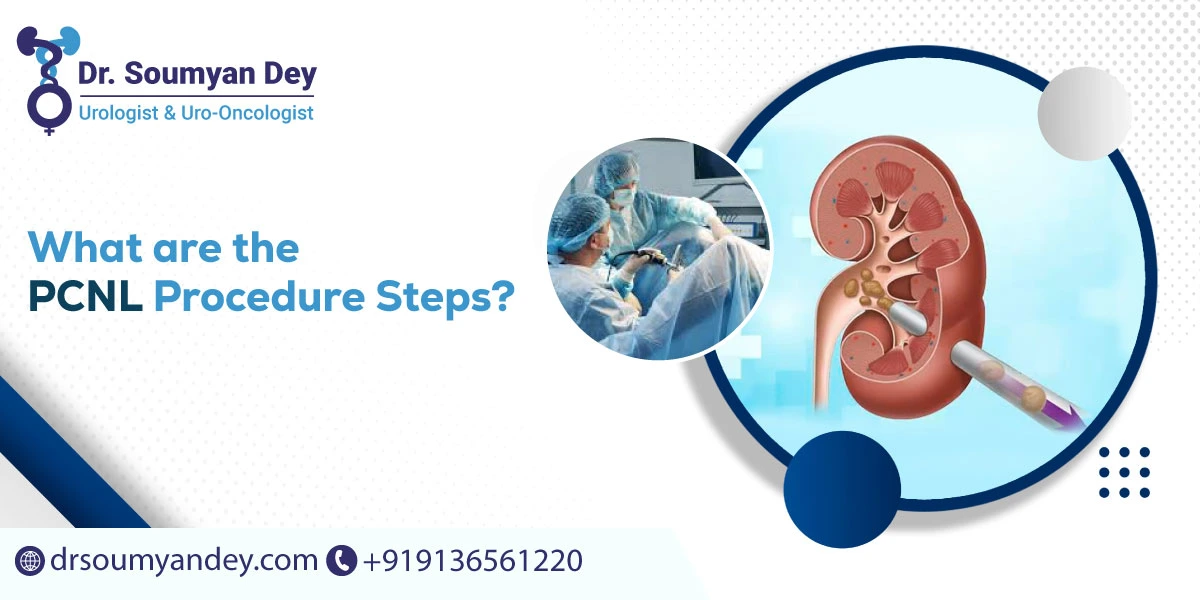Side Effects After PCNL Surgery
1. Introduction
PCNL or Percutaneous Nephrolithotomy surgery is a minimally invasive procedure used to remove kidney stones. In Navi Mumbai, Dr. Soumyan Dey specializes in this surgery, providing advanced treatment for kidney stone patients.
While PCNL Surgery in Navi Mumbai is generally safe and effective, it can be associated with certain side effects and potential complications. Understanding these aspects is crucial for patients undergoing this procedure.
2. Understanding PCNL Surgery
PCNL involves creating a small incision in your back and using a nephroscope (a thin viewing instrument) to directly access and remove kidney stones. It’s a viable option for larger or inaccessible stones through other methods.
3. Common Side Effects of PCNL Surgery
While generally safe, PCNL surgery can lead to certain side effects:
a) Pain and Discomfort:
You may experience flank pain radiating from your back to your lower abdomen. It is typically managed with prescribed pain medication, but over-the-counter options might be needed later. Burning sensation during urination is common due to irritation and swelling. Drinking plenty of fluids and pain medication can help alleviate this.
b) Bleeding and Blood Loss:
Minor bleeding from the incision or in your urine is normal for the first 24-48 hours. The urine might appear pink or reddish but should gradually clear. However, excessive bleeding (bright red, large clots) requires immediate medical attention. Notify your Doctor for Kidney Stone Treatment in Navi Mumbai promptly to prevent complications.
c) Infection:
Antibiotic prophylaxis is typically administered before and after surgery to minimize the risk of infection. However, there’s still a small chance of developing an infection, especially if you experience:
- Fever above 100.4°F (38°C)
- Chills and sweats
- Increased pain or redness around the incision
- Cloudy or foul-smelling urine
d. Urinary Retention:
Temporary difficulty passing urine is a common postoperative occurrence due to swelling or blood clots in the urinary tract. It usually resolves within a few days.
Also Read: What Size Of Kidney Stone Requires Surgery?
4. Potential Complications After PCNL Surgery
Though uncommon, certain complications can arise:
i) Urinary Tract Infections:
Despite preventive measures, urinary tract infections can occur post-surgery. Prompt treatment with antibiotics is essential to prevent complications.
ii) Kidney Stones:
Recurrence of kidney stones is possible even after successful removal through PCNL surgery. Patients are advised to follow dietary and lifestyle modifications to reduce the risk.
iii) Injury to Surrounding Organs or Tissues:
Rarely, PCNL surgery may result in injury to nearby organs or tissues, leading to complications that require further intervention.
5. Managing Side Effects After PCNL Surgery
While managing side effects after PCNL, remember:
A) Pain Management:
Prescribed pain medication helps manage initial discomfort. Ice packs applied over the incision site provide localized relief.
B) Preventing Infection:
Meticulous hygiene around the incision site is crucial. Drink ample fluids to flush out bacteria and toxins.
C) Treatment for Urinary Retention
Address urinary retention promptly with catheterization if needed. It ensures proper bladder emptying until normal urinary function resumes.
6. Conclusion
Understanding the potential side effects of PCNL surgery empowers you to make informed decisions and manage your recovery effectively. Consulting a qualified urologist like Dr. Soumyan Dey in Navi Mumbai ensures you receive the best care and guidance throughout your treatment journey.







